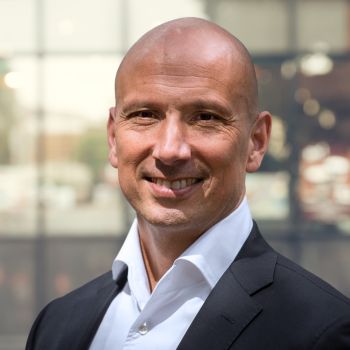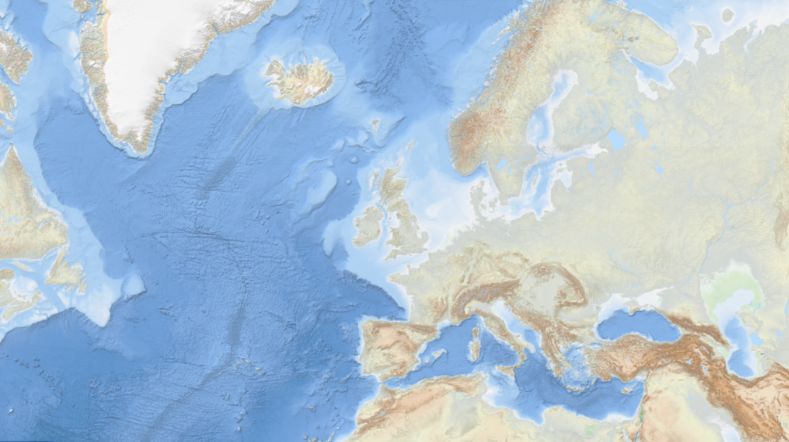‘The Netherlands excels in knowledge but lacks the drive for innovation.’- Insights from Tjark Tjin-A-Tsoi
What does the future of innovation in the Netherlands look like? Although we still live in a prosperous country, it is time to renew our economy. The Netherlands needs to make a significant shift to become a more innovative economy. In a conversation with journalist Paul van Liempt, Tjark Tjin-A-Tsoi, CEO of TNO, elaborates on this vision.
'When you have had decades of prosperity and peace, it is difficult to see that you need to change. To really feel the urgency in your bones. We need to take action on all fronts: defence, the energy transition, you name it. Moreover, education, healthcare, our social system, everything needs to be paid for. A strong and therefore innovative economy is essential for our geopolitical position in the future and our quality of life.'
From a knowledge economy to an innovation economy
How do we achieve this? The Netherlands has a strong foundation in fundamental knowledge, says Tjin-A-Tsoi. The real challenge lies in transforming this into tangible economic and societal value. 'We need to ensure that the entire chain of innovation runs smoothly: from fundamental research to applied research and valorisation, to the successful launch of companies that grow, create jobs and prosperity, and make an impact.'
This means that we also need to create innovative products and services ourselves, both in the Netherlands and Europe. Not just import them from abroad, which makes us completely dependent. Tjin-A-Tsoi: 'It is often not realistic to bring entire value chains to Europe. But you can create mutual dependencies: strategic interdependence. ASML is an example of this. Although this company represents only a small part of the semiconductor value chain, it plays a key role in it and others depend on it. It’s a so-called "control point".'
'This advantage has been achieved through a combination of innovation and persistent entrepreneurship. And once we have a control point, we need to find a way to keep it. As every technological lead is finite and complacency is deadly in the long run.'
Want to hear the full story?
Watch the interview on Youtube (Dutch).
Plenty of knowledge, but the chain of innovation falters
At the moment, the innovation chain mainly falters in the later stages, observes Tjin-A-Tsoi. 'The Netherlands still has fantastic scientists, scientific institutions, and now also many start-ups. But there is still a long way to go to create the structures and culture to grow these into the new tech champions of the future. As Draghi rightly points out in his report, of the 50 most prominent technology companies, only 4 are from the EU. One of them is ASML.'
Can this be changed? 'It requires investments – especially in the steps further down the chain of innovation. Otherwise, there will be a reservoir of good ideas and possibly start-ups, but nothing happens after that. It also requires investments in technical and other infrastructure such as roads, schools, houses, and energy grids. The Netherlands is currently suffering from various forms of congestion that hinder innovation.'

'We need to ensure that the entire chain of innovation runs smoothly: from fundamental research to applied research and valorisation, to the successful launch of companies that grow, create jobs and prosperity, and make an impact.'
Dare to take risks
We should not only look to government for investments; venture capital is needed here. 'Since a large part of the societal capital is invested in pension funds, about 1.6 trillion euros, even a small movement in this area can mean a lot,' says Tjin-A-Tsoi.
He gives the example of Silicon Valley. 'After World War II, the American investment scene was extremely conservative. Pension funds were not allowed to invest in risky companies under the prudent man rule. After the 1929 crisis and the Second World War, they were fed up with risk. Wealthy individuals like the Rockefellers stepped in to help technical companies, initially even as a form of charity.'
'In the 1960s and 1970s venture capital emerged, enabled by pension funds that started investing after the prudent man rule was lifted. More capital became available marking the start of the tech boom, particularly in Silicon Valley. It would be good if a similar movement started in the Netherlands and within the European Union. This will even be necessary as the government is not the appropriate party for all phases of the innovation chain.'
Tjin-A-Tsoi’s personal journey from theoretical physics to leading various organisations is marked by significant career changes and underscores the value of being open to new opportunities and continuous learning. 'The Netherlands excels in innovation but lacks decisiveness. To become truly innovative and entrepreneurial, you must dare to take risks and see both success and failure as valuable learning moments.'
Get inspired
New map reveals coastal resilience and vulnerability across Europe


TNO: Megaclusters to create new tech champions


Climate fund applications from the perspective of broad prosperity


The North Sea as Europe's energy heart requires smart choices


TNO spin-off AIKON Health secures €1.2 million seed round to advance remote heart failure monitoring


